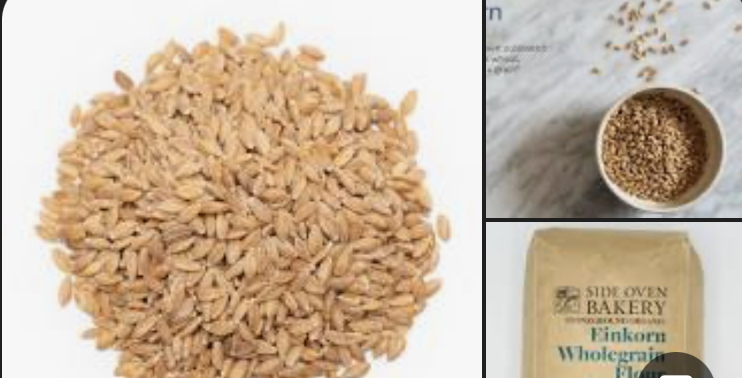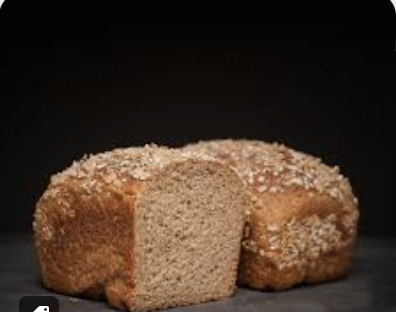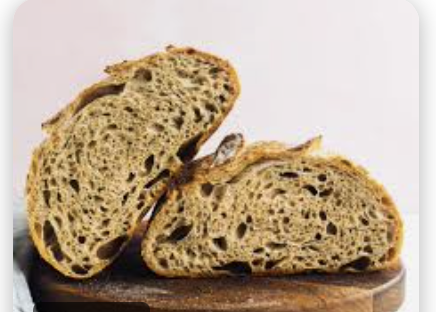A Brief History of Einkorn Flour and Spelt Flour
By A. Geri
Einkorn Flour: The Ancient Grain
Einkorn (Triticum monococcum) is one of the most ancient grains known to humans. It dates back over 10,000 years to the beginnings of agriculture in the Fertile Crescent, making it one of the first grains ever cultivated. The word “Einkorn” in German means “single grain,” referring to the single kernel that grows on each stem. Einkorn thrived in early agricultural communities but was eventually overshadowed by more modern wheat varieties, which yielded higher crops. However, it has recently seen a resurgence in popularity due to its rich nutritional content and unique flavor.
Spelt Flour: An Heirloom Wheat
Spelt (Triticum spelta) is another ancient grain, with its origins traced back to over 7,000 years ago in the Near East and Europe. It was a staple crop in Europe throughout the Bronze and Middle Ages. Unlike modern wheat, spelt is more resilient to harsh weather and poor soil conditions, making it a reliable crop for ancient farmers. However, like Einkorn, it too was gradually replaced by more high-yielding wheat varieties. Spelt has been reintroduced in recent times as a wholesome alternative to modern wheat, prized for its nutritional benefits and slightly nutty flavor.
Culinary Uses of Einkorn Flour and Spelt Flour
Both Einkorn and Spelt flour can be used as alternatives to modern wheat in a variety of dishes, but they have unique qualities that affect how they perform in recipes.
Einkorn Flour in Cooking and Baking
Einkorn flour is known for its yellowish hue and sweet, nutty flavor. Due to its lower gluten content, it produces a more delicate crumb in baked goods and tends to absorb liquids differently than modern wheat flours.

- Bread: Although Einkorn flour has lower gluten than regular wheat, it can still be used to make bread. The texture is denser and more rustic, perfect for artisanal loaves.
- Pasta: Einkorn flour makes a great choice for homemade pasta due to its slightly chewy texture and rich flavor.
- Cookies and Muffins: Its mild sweetness pairs well with desserts like cookies and muffins. It is excellent in recipes that don’t require a lot of rise.
Spelt Flour in Cooking and Baking
Spelt flour has a slightly nutty and sweet flavor. Its gluten structure is more fragile than modern wheat, making it easier to digest for many people. It works well in a wide variety of recipes and can often be used as a direct substitute for wheat flour.
- Bread: Spelt flour can be used to make bread that is lighter and airier than Einkorn, although it is still denser than regular wheat bread.
- Pancakes and Waffles: Spelt flour’s light and nutty flavor makes it an excellent choice for breakfast foods like pancakes and waffles, giving them a heartier texture.
- Pastry Dough: Because spelt has a bit more gluten strength than Einkorn, it works well in recipes like pie crusts and pastry dough, producing a flaky result.
Nutrition Information and Health Benefits
Einkorn Flour: Nutritional Value and Health Benefits
Einkorn flour is highly nutritious and stands out from modern wheat due to its richer nutrient profile:
- High in Protein: Einkorn has a higher protein content (around 18–20%) than modern wheat. It contains all essential amino acids, which are necessary for tissue repair and muscle building.
- Rich in Carotenoids: The yellowish tint of Einkorn flour comes from its high levels of carotenoids, which are powerful antioxidants that help fight inflammation and promote eye health.
- Lower Gluten: Einkorn has a different gluten structure, which is lower and less elastic than modern wheat. While not safe for people with celiac disease, it may be easier to digest for those with mild gluten sensitivity.
- Vitamins and Minerals: Einkorn is packed with vitamins such as B6, riboflavin, niacin, and thiamine. It is also rich in minerals like magnesium, zinc, and iron.
Health Benefits:
- Supports Eye Health: The high carotenoid content helps protect the eyes from age-related macular degeneration.
- Better Digestibility: Some individuals find Einkorn flour easier to digest than modern wheat due to its simpler gluten structure and higher nutrient density.
- Improved Heart Health: Einkorn’s rich antioxidant profile can help lower the risk of cardiovascular disease by reducing inflammation in the body.
Spelt Flour: Nutritional Value and Health Benefits
Spelt flour also boasts a wide range of nutritional benefits, offering more fiber and protein than regular wheat flour:
- Good Source of Fiber: Spelt flour has a high fiber content, which aids in digestion, regulates blood sugar levels, and promotes a healthy gut microbiome.
- Moderate Gluten Content: Though spelt contains gluten, it is different in structure and is often more easily digested by people with gluten sensitivities, although it is not suitable for people with celiac disease.
- Vitamins and Minerals: Spelt flour is rich in vitamins B1 (thiamine), B3 (niacin), and B6, all of which play a role in energy metabolism. It is also a good source of minerals such as iron, magnesium, phosphorus, and manganese.
- Low in Calories: Spelt has fewer calories than other types of wheat, making it a great option for those watching their caloric intake.
Health Benefits:
- Boosts Digestive Health: The high fiber content in spelt helps maintain regular bowel movements and supports overall digestive health.
- Regulates Blood Sugar Levels: The fiber in spelt also helps slow down digestion, preventing sharp spikes in blood sugar.
- Heart Health: Spelt is rich in magnesium, which supports cardiovascular function and helps regulate blood pressure.
Which One Should You Choose?
Both Einkorn and Spelt flours have their unique advantages, and the choice depends on your dietary needs and the type of recipe you are preparing.
- Use Einkorn Flour if you’re seeking a highly nutritious grain with a lower gluten content, ideal for dense bread, pasta, and pastries.
- Use Spelt Flour if you need a versatile, fiber-rich alternative to modern wheat that works well in bread, cakes, and breakfast recipes. Spelt may also be better for those looking for lighter, airier baked goods.
While neither flour is suitable for those with celiac disease due to the presence of gluten, both Einkorn and Spelt offer more digestible alternatives to modern wheat. They also provide a wider range of nutrients and health benefits that make them excellent choices for anyone looking to incorporate more whole grains into their diet.inkorn and Spelt flours each have a rich history, unique flavors, and a range of nutritional benefits. Whether you are looking for a flour with lower gluten content like Einkorn or one that offers fiber and ease of use like Spelt, these ancient grains are valuable additions to any modern kitchen. Both flours are versatile and nutritious, promoting better digestion, heart health, and overall wellness.
1. Einkorn Flour Artisan Bread

This simple artisan Einkorn bread has a rustic texture, a chewy crumb, and a nutty, sweet flavor. Perfect for sandwiches or dipping in olive oil.
Ingredients:
- 4 cups Einkorn flour (500g)
- 1 ½ tsp sea salt
- 1 tsp instant yeast
- 1 ½ cups warm water (350 ml)
- 1 tbsp olive oil (optional, for extra softness)
- 1 tsp honey (optional, for a slightly sweet flavor)
Instructions:
- Mix the Dough: In a large bowl, combine the Einkorn flour, salt, and yeast. Add warm water and honey, then stir with a wooden spoon until a dough forms. The dough will be sticky, which is normal for Einkorn.
- Rest: Cover the bowl with a kitchen towel and let the dough rest for about 1 to 2 hours, or until doubled in size. Einkorn doesn’t rise as much as modern wheat, so don’t expect a huge increase in volume.
- Shape the Dough: Once the dough has risen, transfer it to a well-floured surface. With floured hands, gently shape the dough into a round loaf. You can also place it into a loaf pan if you prefer a rectangular shape.
- Final Proofing: Cover the shaped loaf with a towel and let it rest for 30 to 45 minutes to rise again.
- Preheat the Oven: While the dough is proofing, preheat your oven to 450°F (230°C). Place a Dutch oven (or a baking stone) inside to heat up.
- Bake: Carefully transfer the dough to the preheated Dutch oven, cover with the lid, and bake for 30 minutes. After 30 minutes, remove the lid and bake for another 10–15 minutes, or until the crust is golden brown.
- Cool: Let the bread cool on a wire rack for at least 30 minutes before slicing.
Tips:
- Since Einkorn absorbs less water than regular wheat, the dough will be wetter and stickier.
- The honey adds a subtle sweetness, which can be omitted if you prefer a more savory bread.
2. Spelt Flour Sandwich Bread

Spelt flour creates a lighter, airy loaf with a mild nutty flavor, perfect for everyday sandwich bread.
Ingredients:
- 4 cups spelt flour (500g)
- 2 tsp sea salt
- 1 ½ tsp active dry yeast
- 1 ½ cups warm water (350 ml)
- 1 tbsp olive oil
- 1 tbsp honey or maple syrup (optional, for sweetness)
Instructions:
- Activate the Yeast: In a small bowl, mix warm water with the yeast and honey. Let it sit for 5–10 minutes, until the yeast becomes foamy.
- Mix the Dough: In a large bowl, mix the spelt flour and salt. Add the yeast mixture and olive oil, stirring until a dough forms. The dough will be a bit sticky, but should come together nicely.
- Knead: On a lightly floured surface, knead the dough for about 5–7 minutes, until smooth and elastic. Spelt dough is more delicate, so don’t over-knead it.
- First Rise: Place the dough in a lightly oiled bowl, cover with a towel, and let it rise for 1–1.5 hours, or until doubled in size.
- Shape the Dough: After the first rise, punch down the dough and shape it into a loaf. Place the dough into a greased 9×5-inch loaf pan.
- Final Proofing: Cover with a towel and let the dough rise again for 30–45 minutes, until it reaches the top of the pan.
- Preheat the Oven: While the dough is rising, preheat your oven to 375°F (190°C).
- Bake: Bake the bread for 30–35 minutes, or until the top is golden brown and sounds hollow when tapped.
- Cool: Remove the bread from the oven and let it cool in the pan for 10 minutes before transferring to a wire rack to cool completely.
Tips:
- Spelt flour ferments faster than modern wheat, so be careful not to overproof the dough during the rising stages.
- This bread freezes well; slice it and freeze for easy sandwiches throughout the week.
These two recipes are perfect for showcasing the versatility and unique flavors of Einkorn and Spelt flour. Both flours are packed with nutrients and offer healthier, digestible alternatives to modern wheat breads.
I hope found the post usefull. Stay tuned for my next topic on a helathy products and more delicious recipes. Leave your thoughts below and like if you were satisfied with the content.

